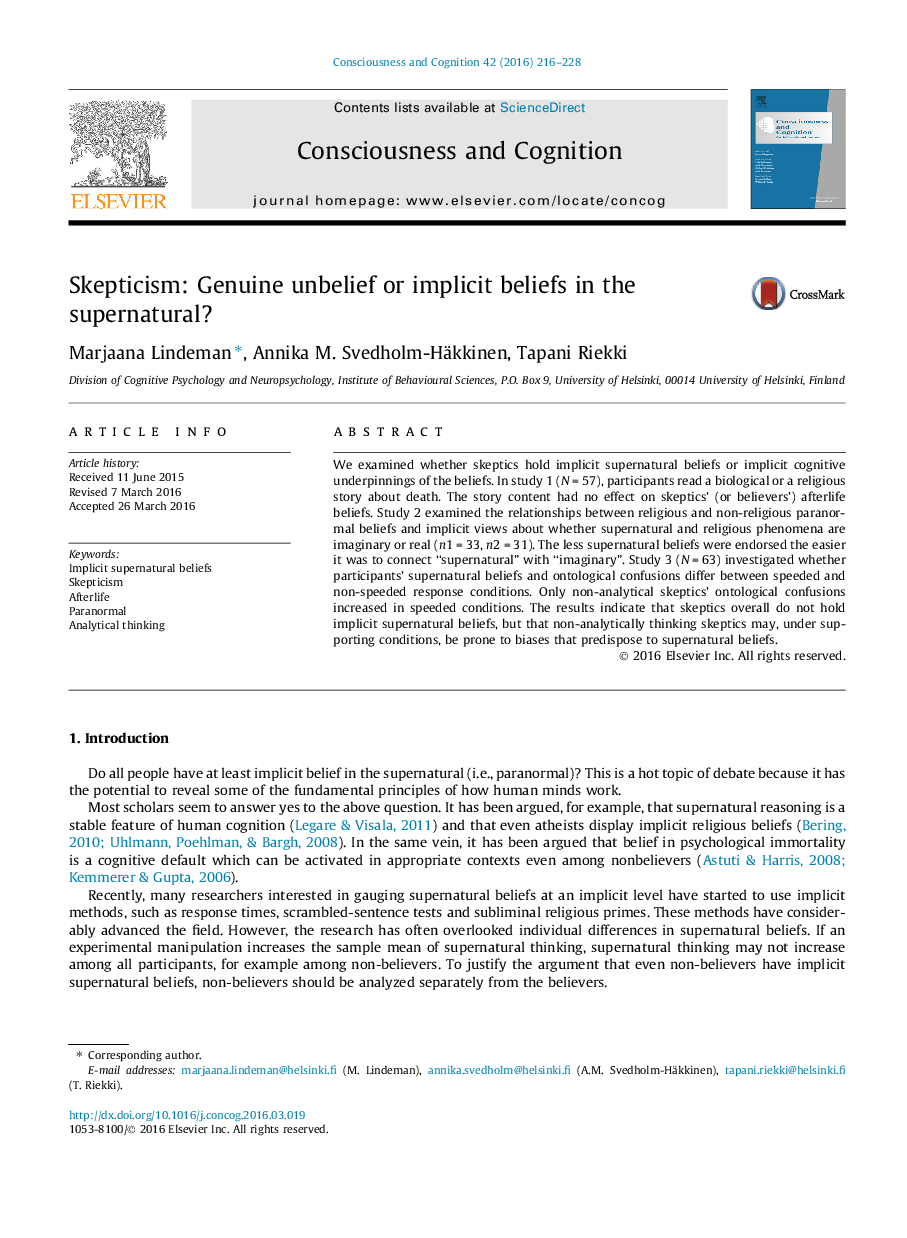| Article ID | Journal | Published Year | Pages | File Type |
|---|---|---|---|---|
| 7288491 | Consciousness and Cognition | 2016 | 13 Pages |
Abstract
We examined whether skeptics hold implicit supernatural beliefs or implicit cognitive underpinnings of the beliefs. In study 1 (NÂ =Â 57), participants read a biological or a religious story about death. The story content had no effect on skeptics' (or believers') afterlife beliefs. Study 2 examined the relationships between religious and non-religious paranormal beliefs and implicit views about whether supernatural and religious phenomena are imaginary or real (n1Â =Â 33, n2Â =Â 31). The less supernatural beliefs were endorsed the easier it was to connect “supernatural” with “imaginary”. Study 3 (NÂ =Â 63) investigated whether participants' supernatural beliefs and ontological confusions differ between speeded and non-speeded response conditions. Only non-analytical skeptics' ontological confusions increased in speeded conditions. The results indicate that skeptics overall do not hold implicit supernatural beliefs, but that non-analytically thinking skeptics may, under supporting conditions, be prone to biases that predispose to supernatural beliefs.
Related Topics
Life Sciences
Neuroscience
Cognitive Neuroscience
Authors
Marjaana Lindeman, Annika M. Svedholm-Häkkinen, Tapani Riekki,
